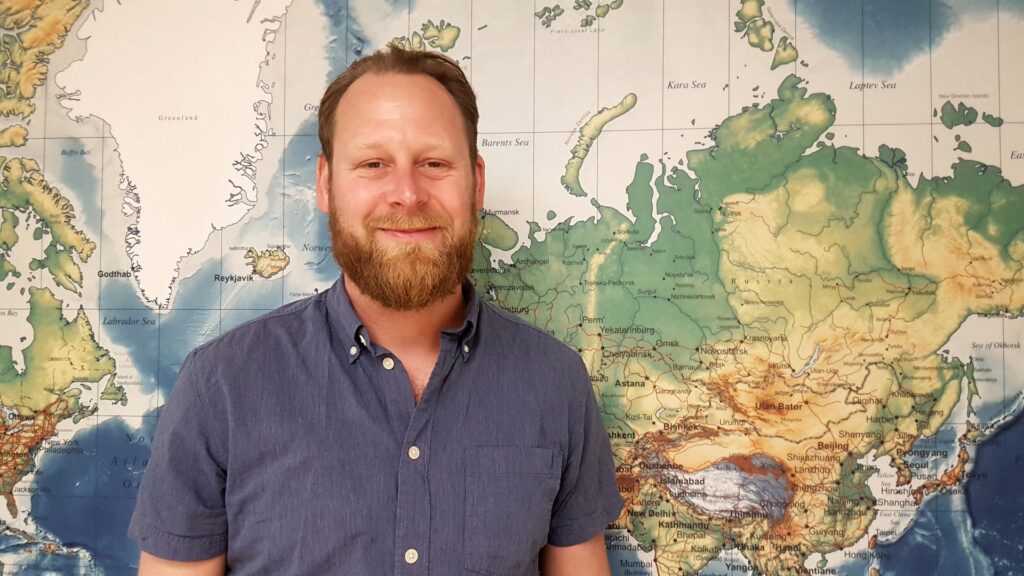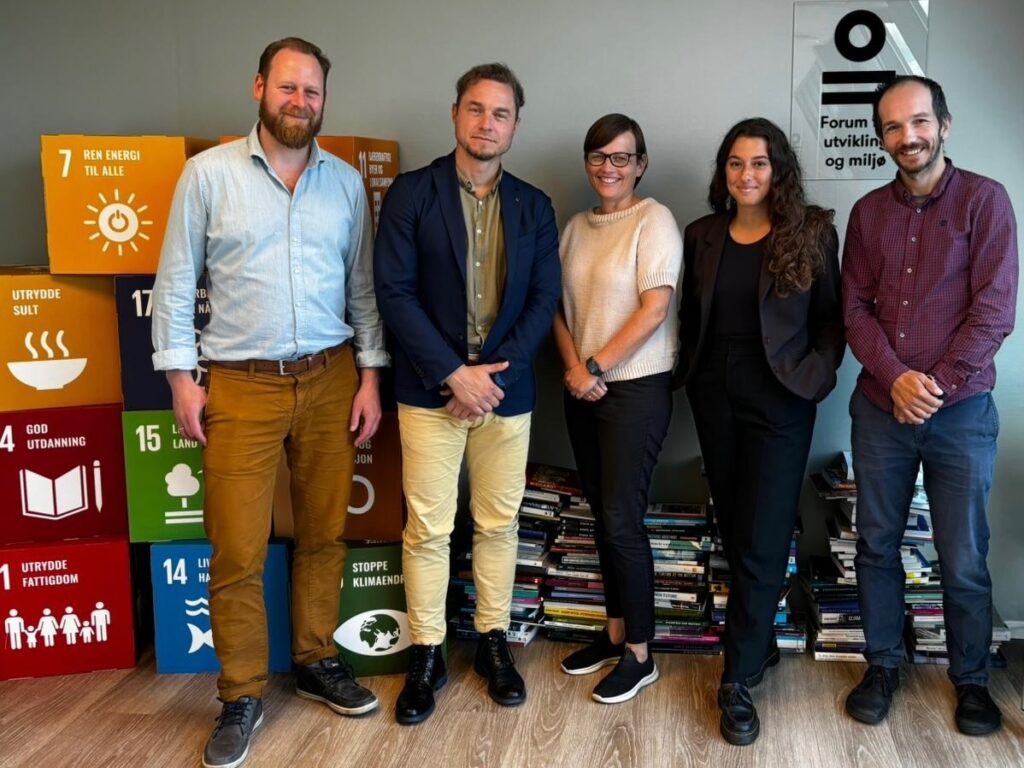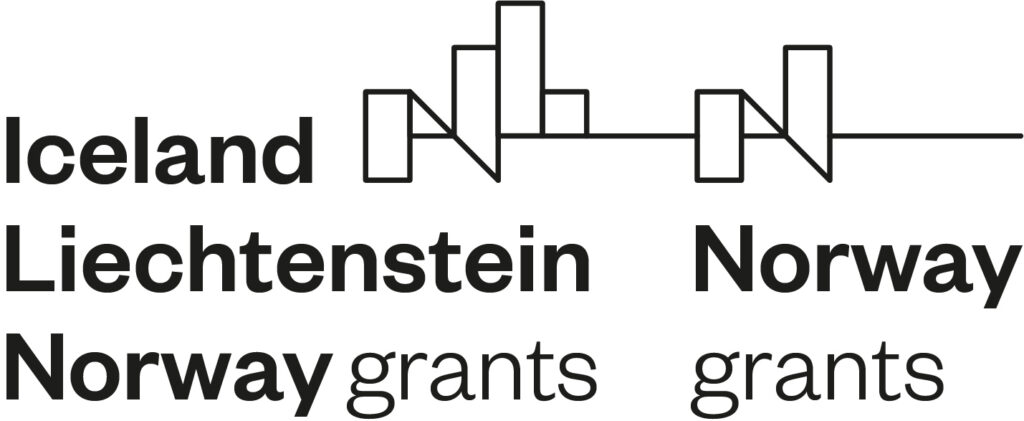Johan Aron Niklas Halfen is currently working as the Head of Policy at Norwegian Forum for Development and Environment (ForUM) in Oslo. He previously worked as an Adviser for the state administration (MFA Norway) and for the charity too (Caritas Norway). His expertise spans politics, sustainable development, climate change, policy, and international relations. Aron will facilitate workshop ‘Collaboration for Impact: Strengthening Civil society organizations (CSO)’ during Ambrela development forum #ADF2024 on October 10 in Bratislava. Here are some hints why you shouldn’t miss it.

What are the primary roles and objectives of the Norwegian Forum for Development and Environment (ForUM)?
ForUM is a network of more than 60 Norwegian NGOs and focuses our main work in the field of international development cooperation/aid, environment and climate. Born out of the work with our Common Future and the Brundtland Commission from 1993 on Sustainable Development, we recently celebrated 30 years as an organization, with considerable impact on Norwegian policies and positions in the UN high level meetings on Climate, Nature, the SDGs and Finance for Development. This is our main role, to galvanize civil society for more ambitious targets and policies in Norway and Internationally, and objective even today.
In what specific ways can ForUM’s experience enrich the work of the Slovak Platform for Development Organizations – Ambrela?
I think ForUM has a lot to offer in terms of building partnerships and alliances within civil society, but also with the Government and private sector when this is needed.
How can Norway serve as a model for Slovakia in areas such as sustainable development?
Norway used to be in the forefront in this work up until the Rio Summit in 1992. After that Norway has not really been a role model on sustainability given our oil production and export, harmful imports for other countries (Soy that has caused deforestation) and excessive consumption. If everyone was to consume like an average Norwegian we would need 4 planets! However, Norway has started the work to become a more sustainable economy and with a goal of being coherent in policies at home and abroad that has been the focus of several White Papers, with a push from ForUM to get the work going. This can be seen as an inspiration for Slovakia and Ambrela.
How does ForUM perceive the shrinking space for civil society across Europe, and how are you addressing it?
We see the shrinking space for civil society as a major challenge globally, and increasingly in Europe and even Norway. We have contacts with international networks and push for meaningful participation in the UN. We will focus more on this work in the coming years and have seminars leading up the UN meetings with Human Rights activists and experts to get this higher on the agenda.
What have been ForUM’s major successes in policy and advocacy over the past five years?
ForUM was very active in advocating for a Transparency Law, finally adopted in 2022, through a coalition for responsible businesses and with our member organizations. We are still on the board of the alliance and now working for the right implementation of the law. In 2022 ForUM also coordinated the civil society, both nationally and through UNEP, in advocating for a strong agreement for Nature, the Kunming-Montreal agreement that was finally agreed in December 2022. On climate advocacy we have over the last 5 years argued that Norway’s fair share of climate finance according to the Paris Agreement should be at least 65 billion NOK, which is 5 times higher than the current level, and that is starting to get acceptance among some of the political parties that can tip the balance in the right direction. This could be a game-changer for closing the finance gap.
Are there any particular challenges currently facing civil society in Norway that ForUM is actively working to address?
ForUM has coordinated an alliance to stop deep sea mining in Norway, which the Government is currently trying to start as the first country in the world. That would probably have the most serious and degrading effects on nature in Norway, and a breach of the Kunming-Montreal agreement in terms of the 30 percent target for representative conservation. The Government has accused ForUM and civil society to make up false accusations about the process and effects, while in fact it is the Government that is not following the advice from their own institutions on being cautious until further information is in place. We have seen a pattern lately that the Government is taking a more critical stand against civil society and also not giving us priority to meet responsible Ministers. This is an alarming change in Norway where we are used to having a good and close dialogue, and this has been even stronger felt in Sweden where funding for civil society has been cut and they have little access to the decision makers.
How much public support does ForUM receive from Norwegians?
ForUM receives public funding and we are obliged to inform the public about Norwegian and our policies. We have strong support among our members and among bureaucrats in the most relevant institutions, but we are not very well known outside our circle. However, the policies we try to change will resonate quite well with the public and the image of Norway in the world, at least the role we want Norway to have.
What workshop will you be hosting at the October Ambrela development forum (ADF) in Bratislava, and what will your focus be?
ForUM will host a workshop on how to build stronger partnerships, with a focus on civil society, but also building alliances with the public and private sector and using the UN and some of the agreements that have been signed as a framework for the change we need to see. Like the Paris agreement on climate.

Why should participants not miss your workshop?
I think people will find our approach different and refreshing as we have some experience with “Nordic exceptionalism” and how this model can be fruitful in other countries. Basically, how to build trust and make solutions that benefit everyone, like Universal Welfare.
Which activity or session from the ADF 2024 agenda are you personally most excited about?
There are so many exciting topics, but I would say that the discussions on Ukraine and the geopolitical situation will be of special interest to me as a political scientist and activist.
Written by: Ambrela team, Photos: ForUm & Ambrela archive
„Together for a green, competitive and inclusive Europe“. The initiative is funded by the Fund for Bilateral Relations at National Level financed by the EEA and Norway Grants 2014-2021. For more information, please visit: www.eeagrants.sk.

Copyright 2025 Ambrela – Platforma rozvojových organizácií. Táto stránka je financovaná zo zdrojov SR cez SlovakAid a EÚ cez Stronger Roots. Za obsah nesie výhradnú zodpovednosť Ambrela a nemusí nevyhnutne odrážať názory donorov.